Resources and Sustainability
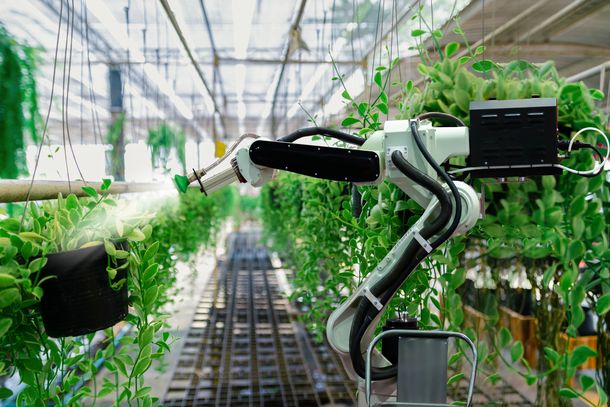
Explore our university's sustainable initiatives and projects. In this space, we engage with an interdisciplinary approach, centring on sustainability sciences, resource utilisation, and management. Our focus encompasses pivotal areas like water and energy. Our goal? To tackle essential aspects such as supply security, resilience against changing environments, and the creation of circular value, all within the framework of a sustainable future.
In our rapidly evolving world, the responsible and efficient utilisation of resources emerges as a global imperative. Our exploration in this realm spans a broad spectrum, incorporating both research and educational ventures. We are dedicated to comprehending and forging practical solutions in a world facing resource scarcity and significant environmental challenges.
This page acts as a portal to the most recent research, educational opportunities, and initiatives in the realms of resources and sustainability at our institution. We invite you to join us in our pledge to a more sustainable and resource-conscious future, a future where prudent resource management is a collective endeavour.
Ongoing research projects on Resources & Sustainability
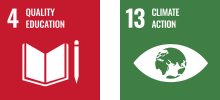
Project management: Prof. Dr. Carla J. Vogt
Funding source: Deutsche Forschungsgemeinschaft (DFG)
Duration: 2025-2026
The project investigates the effects of heterogeneous inequality aversion on paths of optimal climate policy in integrated assessment models. A core question is how results on optimal temperature increase change compared to the case of standard preferences. Moreover, the project aims at checking out how the prospects of voluntary international coalition formation is affected.

Project management: Prof. Dr.-Ing. Inka Mueller
Funding source: Bundesministerium für Wirtschaft und Klimaschutz
Duration: 2022-2024
A current problem in acoustic emission testing is the comparability of acoustic emission sensors from different manufacturers and the verification of the functionality of the sensor technology in laboratory and field use.
Two areas are to be addressed as part of the project. In the area of sensor calibration, comparisons of the various favored methods are to be carried out. For this purpose, studies on calibration using a laser vibrometer as a reference measuring system and studies using directly coupled sensors are to be carried out. Based on these investigations, a specification/standard is to be prepared that shows how acoustic emission sensors can be calibrated and characterized in a practicable and comparable manner.
In the area of sensor verification, the focus is on identifying a practicable procedure for simple use in the laboratory and in the field. The focus is on determining the main variables influencing the test result and designing a process protocol for testing functionality in a wave-based approach or in an approach using electromechanical impedance. This should also serve as a basis for the development of a specification/standard. The work packages of BO focus on sensor verification using the electromechanical impedance.
The project is intended to support the market penetration of acoustic emission testing through the development of uniform interfaces, data sheets, specifications and standards. At the same time, it is intended to show ways in which the precarious situation of sensor calibration can be overcome at an international level.


Project management: Prof. Dr. Haydar Mecit
Funding source: Bundesministerium für Wirtschaft und Klimaschutz
Duration: 2022-2025
The energy transition is not only important to us due to the current security policy situation, energy resource shortages and the explosion in energy prices. A change towards sustainable energy sources is a central task of our generation for the security and future of generations to come, especially in view of climate change.
This area of tension is being driven forward at Bochum University of Applied Sciences in particular through the development and testing of innovative, digital energy solutions for urban areas. As part of the BMWK project SEGuRo, we are working with RWTH Aachen University and the local energy supplier Stadtwerke Herne AG to implement corresponding R&D work on the secure digitalization of a section of the electricity grid in a real urban environment. The development towards a so-called smart grid is being carried out together with stakeholders from industry, science and the public. In this context, the term ‘smart energy solutions’ is also used, with a particular focus on the topic of secure, critical energy infrastructures.
The increasing penetration of distributed generators (e.g. photovoltaic systems) and loads (e.g. electric cars and heat pumps) at distribution grid level is leading to more dynamic and increasingly unpredictable grid behavior. This requires flexible control of the systems in distribution grids in order to harmonize them with the loads as far as possible, thereby ensuring continued security of supply and grid stability and avoiding critical grid states. In this context, Redispatch 2.0 is being introduced as part of the Grid Expansion Acceleration Act, which also provides for the postponement of electricity production for smaller systems from 100kW. A corresponding regulation requires innovative solutions for distribution grid monitoring, which enables a holistic understanding of the system and is to be developed in this project.
The SEGuRo concept provides for forgery-proof signing of measurement data directly at the measuring point, a secure communication channel for transmitting the data and a real-time-capable monitoring platform. The monitoring platform essentially comprises a combination of a digital twin and dynamic network status estimation as well as data management and visualization. Such a comprehensive combination of technologies is an innovation in grid monitoring and provides an elementary digital basis, not only for grid control, but also for the flexible billing of new types of grid services, among other things.


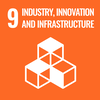
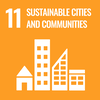
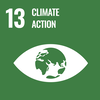
Project management: Prof. Dr. Peter Hense, Prof. Dr.-Ing. Semih Severengiz
Funding source: Ministerium für Wirtschaft, Industrie, Klimaschutz und Energie, Land NRW
Duration: 2023-2024
The EcoTecHub Bergkamen project is creating an innovation and technology center (“hub”) for sustainable value creation in the district of Unna. In future, the EcoTecHub will support companies in shaping sustainable transformation processes against the backdrop of structural change in the former coal-fired power plant region of Bergkamen. The project is primarily concerned with innovations in the field of the circular economy and defossilization, with a thematic focus on energy and materials.
With the creation of the EcoTecHub, the project is making an active contribution to the transformation of the former coal-mining region of the district of Unna into an innovative and future-oriented region. Through close cooperation with the universities in Bochum and Gelsenkirchen, the project creates a lasting transfer of know-how with applied research in the region (the district of Unna itself has no public university or college location). The EcoTecHub combines development, production, recycling and digitalization expertise and in this way offers a unique range of research and development services in the region for research and development in the areas of the circular economy and defossilization.
Among other things, the EcoTecHub deals with the circular perspectives of hydrogen solutions for industry, or researches the optimization of the (chemical) recycling of plastic products and subcomponents.
The EcoTecHub project is preceded by a 14-month preliminary study in the period October 2023 - December 2024. During this period, research teams from Bochum University of Applied Sciences and the Westphalian University of Applied Sciences will investigate the extent to which the EcoTecHub can be anchored in the region with a focus on the circular economy and sustainability so that the city of Bergkamen can qualify for funding under the 5-StandorteProgramm (5-location program). As part of the project, analyses will be carried out to identify the needs, requirements and potential of companies in the region. One aim is to examine location-specific and structurally relevant aspects, incorporating the ideas and visions of the local economy for the development and long-term operation of the technology hub. The researchers are developing supra-regional, long-term and strategic project content that is not yet being addressed by local companies, but shows great (innovation) potential for the region and beyond. Development and implementation scenarios as well as a financing and operator model are being developed to optimize the future viability of the players, products and processes in Bergkamen by establishing a regional technology and knowledge transfer hub.

Project management: Prof Dr Mi-Yong Becker
One principle on the way to a sustainable society is that transformation is a joint task. Bochum University of Applied Sciences is putting this idea into practice with the THALES project, which was launched in 2023. It takes university knowledge out of the ivory tower and brings sustainability research results to life in the Ruhr metropolis. The aim is for technical, economic and social innovations to arrive and be implemented where they were originally developed: At the heart of our society.
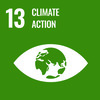
Project management: Prof. Dr.-Ing. Christoph Mudersbach in cooperation with Prof. Dr Jörg Frochte
Billions of euros in property damage, almost 200 deaths: the flood of the century in July 2021 showed that the Ruhr metropolis is not adequately prepared for extreme weather events caused by climate change. Artificial intelligence can help make cities more resilient. The project will create a digital and intelligent monitoring system for flooded streets. Where in the Ruhr metropolis is it most dangerous to flood? Analysis of weather data and forecasting models will provide clues. The Hydraulic Engineering and Hydromechanics Research Department is working with experts in applied artificial intelligence on this central question: How can urban development take account of floods, heavy rainfall and the like? Solutions are developed and implemented together with, for example, water boards, local authorities, municipal utilities and administrations.
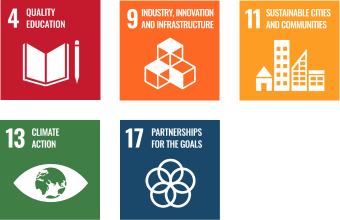
Project management: Prof. Dr Petra Schweizer-Ries
Funding programme: Innovative University
Funding organisation: Federal Ministry of Education and Research (BMBF)
Duration: 01/2023 – 12/2027
This project is about urban ecology and community building. The project is based on our university garden, the BOase. The BOase is unique in that it is based on the concept of permaculture. The BOase addresses biodiversity and sociodiversity on campus in a creative and innovative way. The aim of our transfer project 4 is to extend the concept and approaches of the "BOase" for the formation and promotion of communities to the entire Ruhr metropolis. To this end, we are addressing all types of green spaces as important socio-ecological areas in urban spaces. Our research focuses on the exploration and further development of awareness-based methods, which we consider to be key factors for successful communities and which we apply in a process-oriented manner for the participatory development of green spaces.
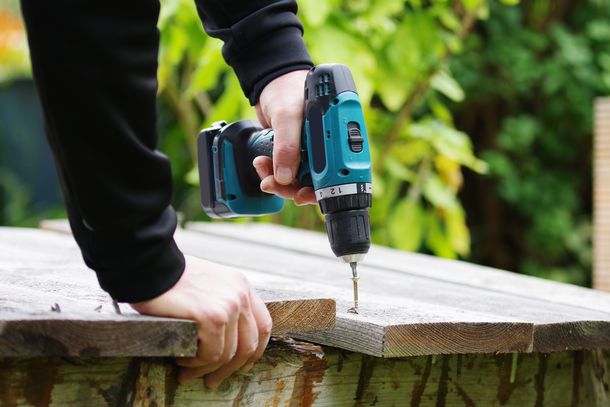
Project management: Prof. Dr Oliver Stengel & Prof. Dr Jacinta Kellermann
Bochum University of Applied Sciences, known for its repair initiatives such as the Repair Café and the Library of Things, is looking to expand its impact. The Faculties of Electrical Engineering and Computer Science plan to digitally and locally network lending and repair stations across the Ruhr metropolis, promoting sustainability and waste reduction through shared resources and workshops.
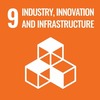
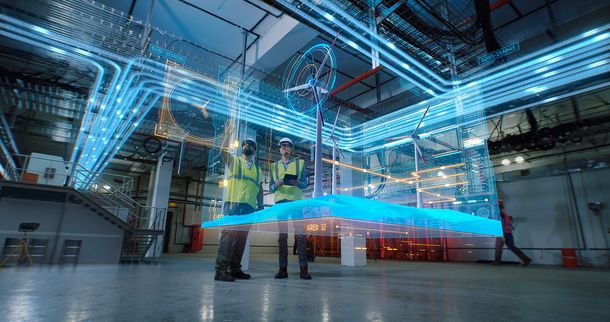
Project management: Prof. Dr. Daniel Schilberg
The fourth industrial revolution is already in full swing: people, machines and processes in industry are directly networked. Can the Ruhr metropolis keep up? After all, standard products can now be produced cheaply and in high quality overseas. The key is sustainable and efficient production. Bochum University of Applied Sciences is advising and supporting regional companies in the digitalisation and networking of their production processes. In the BO Smart Factory, real processes are recorded and possible scenarios are analysed. Answers are also being developed to the question: "How do you prepare employees for change?

External content
YouTube Video
We need your consent to show you a video from YouTube here. You can display this (and therefore all other YouTube content on our website) after you have given your consent.
With your consent, personal data may be transferred to third-party platforms. You can find out more in our privacy policy . You can opt out at any time via the Cookie settings link at the bottom of the page.
External content
YouTube Video
We need your consent to show you a video from YouTube here. You can display this (and therefore all other YouTube content on our website) after you have given your consent.
With your consent, personal data may be transferred to third-party platforms. You can find out more in our privacy policy . You can opt out at any time via the Cookie settings link at the bottom of the page.
Project management: Prof. Dr. Christian Scheffer
Duration: 2024 – 2027
Funding body: DFG (German Research Foundation)
Project Partners: TU Braunschweig
Collaboration partners: NASA Ames (USA), MIT (USA), University of Houston (USA), Stony Brook University (USA)
The project explores the construction and modification of structures composed of many basic elements using autonomous robots. It addresses challenges in scenarios with very large or very small dimensions, particularly in extraterrestrial space or microscopic environments. Recent advances in transformable matter and scalable lattice materials enable the construction of modular, reconfigurable lattice-based structures. The project focuses on the next step - empowering a collective of robots to perform construction tasks based on cellular structures, such as construction, maintenance and reconfiguration. The scalability relies on parallelism between simple robots, combining distributed coordination algorithms with optimisation methods that take into account various geometric aspects. The collaboration includes TU Braunschweig and partners such as NASA Ames, MIT, University of Houston and Stony Brook University.
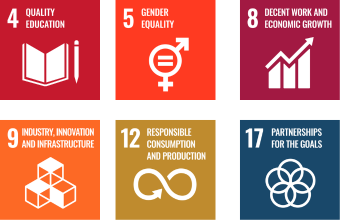
Projecr leadership: Prof. Dr.-Ing. Friedbert Pautzke, Prof. Dr. Roland Böttcher & Dr.-Ing. Alexandra Lindner
Funding provider: Bundesministerium für Bildung und Forschung (BMBF)
Duration: 2023 – 2027
The StartUpLabs@BO project began at Bochum University of Applied Sciences in early 2023 and is supported by the Federal Ministry of Research and Education as part of the "Research at Universities of Applied Sciences" programme. It will run for four years and focuses on improving start-up activities at the university. The StartUpLab is intended to be the first point of contact and an open meeting place for those interested in founding a company and to offer creative players special freedom to experiment, validate and test innovative ideas. The appropriate equipment will be provided and students, staff and lecturers will be supported.
The four main objectives of the project are
- Increasing transfer and start-up skills at Bochum University of Applied Sciences.
- Establishing and networking decentralised labs and a central StartUpLab.
- Increasing diversity in start-ups.
- Development of programmes for alumnae* and alumni*.
Further information can be found on the project website.
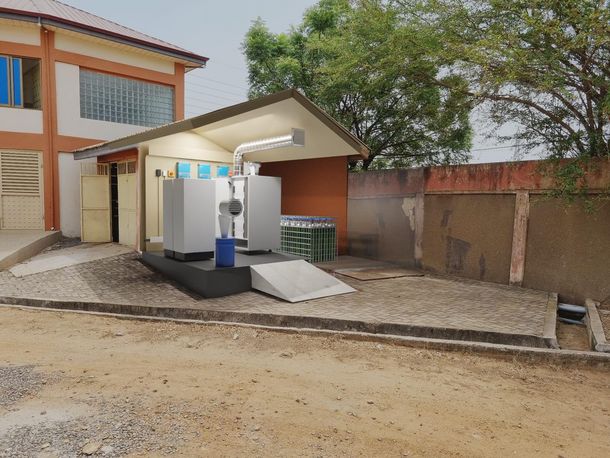
Project management: Prof. Dr.-Ing. Semih Severengiz
Funded by: Federal Ministry for the Environment, Nature Conservation, Nuclear Safety and Consumer Protection (BMUV)
Duration: 01/2023 – 12/2025
Volume (in €): 907.022,01 €
Co-operation partner: Green Power Brains, SFC Energy und Don Bosco Solar
In sub-Saharan Africa, including Ghana, national power grids face challenges that result in unreliable access to electricity. Despite Ghana's development, only 86% of the population will have access to electricity in 2020. In rural areas, the electrification rate is even lower at 28.5%. Climate change impacts such as droughts and low water levels at the Akosombo Dam further strain the electricity supply, which is often replaced by fossil fuels, increasing CO2 emissions.
The GH2GH project addresses these issues by focusing on green hydrogen technology for decentralised energy systems. A pilot project in Tema, Ghana, integrates an electrolyser and storage system into an existing solar mini-grid. This green hydrogen powers a fuel cell during periods of low sunlight, promoting energy self-sufficiency and reducing reliance on diesel generators.
The project will evaluate the lifecycle, social acceptability and sustainability of the system in comparison to batteries. The consortium includes Bochum University of Applied Sciences, Green Power Brains, SFC Energy and Don Bosco Solar. Supported by the German Federal Ministry of Education and Research, the project aims to create a comprehensive network, remove legal and administrative barriers, and export the technology for wider use.
GH2GH
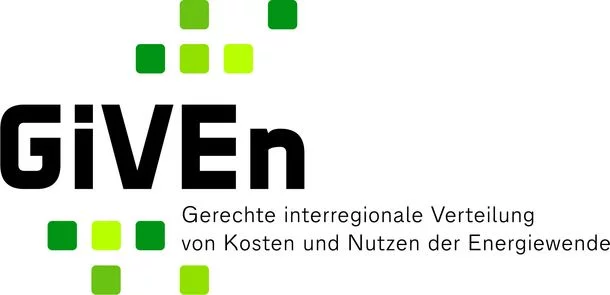
Project management: Prof. Dr. Stephan Sommer
Funding organisation: Federal Ministry of Economics and Climate Protection (BMWK)
Duration: 2022 – 2025
Co-operation partner: UFZ Leipzig
The project addresses the critical issue of ensuring equity in the organisation of energy system transformation. Recognising the importance of equity in selecting locations for renewable energy infrastructure, the project aims to understand how equity between regions can be taken into account in the expansion of such infrastructure. This will involve analysing different equity approaches, assessing their practical implications and exploring regulatory implementation. Through conceptual analysis, empirical application and citizen surveys, the project aims to provide a scientifically sound basis for policy makers to make informed decisions regarding the expansion of energy infrastructure in Germany.
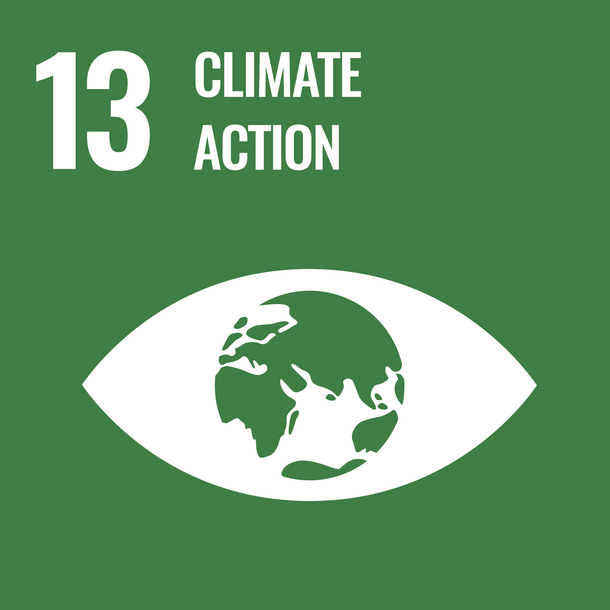
Project leader: Prof. Dr.-Ing. Andrej Albert & Clara Walsemann, M.Sc.
Duration: 2023 – 2025
Funding provider: German Federal Foundation for the Environment (DBU)
The building material (steel) concrete continues to dominate the global and German construction industry. The production of one tonne of the cement required for concrete releases 0.61 tonnes of CO2. Around 2.5 billion tonnes of cement are consumed worldwide in building construction alone. Slabs and foundations in building construction alone account for 55% of this, i.e. around 1.4 billion tonnes of cement and 0.83 billion tonnes of CO2.
One solution for reducing the amount of concrete used in ceilings and foundations is hollow-core slabs, which offer potential material and CO2 savings of around 25 % compared to solid concrete ceilings. However, the disadvantage of previous hollow core systems is the significant reduction in the shear load-bearing capacity compared to solid concrete ceilings, so that the effective area of application is reduced to approx. 60 % of the ceiling or foundation area. As a result, lightweight construction with hollow core slabs has often been at a cost disadvantage compared to solid slabs/foundations. Despite the environmental advantages of hollow core systems, the vast majority of slabs and foundations are therefore still built using solid construction methods.
The central aim of the project is to increase the shear load-bearing capacity of biaxially tensioned hollow core slabs and foundations by 50%, thereby maximising the area of application of hollow core technology and the potential savings in terms of materials and CO2. This goal is to be achieved through a new geometric principle of hollow core technology. These are truncated cone-shaped hollow bodies, which are installed with the "pointed" side alternating upwards and downwards, thus precisely mapping the flow of forces in ceilings/foundations. The increased shear load-bearing capacity of the new hollow core technology means that it can also be used in areas close to walls and columns. This increases the area of application to up to 80 % of the entire floor/foundation area. This approach saves up to 40 % of the concrete used in ceilings and foundations. In addition, for the first time they should also have clear cost advantages over solid ceilings, so that they can be used across the board and achieve a rapid, acute and high environmental impact.
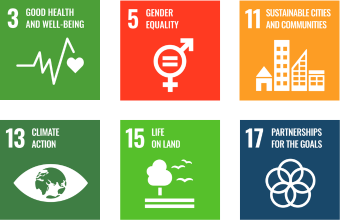
Project management: Prof Dr Petra Schweizer-Ries
Duration: 10/2020 – 09/2024
Co-partner: German Society for Solar Energy (DGS) - Berlin Regional Association (consortium leader)
The MonDoWi module at Bochum University of Applied Sciences focuses on fostering collaboration in the energy sector. Key aspects include:
- Linking Academia and Real World: It connects research teams with tradespeople, businesses, and politicians to support energy transition.
- Encouraging Societal Transformation: The module facilitates discussions and collaborations for major changes in the energy sector.
- Overcoming Communication Barriers: Acknowledging communication challenges, it involves experts to create effective communication spaces, both physical and virtual.
- Global and Practical Focus: Aligning with Sustainable Development Goals, it emphasizes global cooperation and practical applications in energy sustainability.
- Objectives: Its goals are to achieve effective collaboration, develop shared visions, demonstrate successful cooperation, and organize networking events.
Project leadership: Dr. Alexandra Lindner
Duration: 12/2023 – 11/2024
Funding organisation: Federal Ministry for Economic Affairs and Climate Protection (BMWK)
The German government's start-up strategy aims to strengthen the start-up scene by empowering female founders and promoting diversity. At 20 per cent, the proportion of female founders in Germany is higher than the national average and has been increasing in recent years. This is partly due to the commitment of start-up networks, which provide a wide range of programmes to raise awareness, promote and network women in the start-up scene.
With the introduction of EXIST-Women, women at universities who are interested in starting a business and have an affinity for entrepreneurship are given the opportunity to familiarise themselves with the topics of start-ups and self-employment at an early stage. The aim is to strengthen the commitment of start-up networks at universities in order to motivate women from different backgrounds to become involved in the topic of start-ups. These include graduates, scientists, students and women with professional qualifications and a connection to the university, such as technical assistants, chemical-technical assistants and administrative assistants.
EXIST-Women includes various funding opportunities:
- Event programmes: Events are organised with the aim of raising women's awareness of the topic of start-ups and familiarising them with relevant resources and networks. Lectures and workshops on topics relating to setting up a business, personal development and networking events are held every fortnight.
- Counselling and support services: Counselling and mentoring services are offered to support aspiring female founders in developing their business ideas and implementing their start-up projects. The university has a budget of 10,000 euros available for the organisation of events and specialised advisory services.
- Financial grants: Prospective female founders receive financial support of up to 2,500 euros as well as material resources worth 2,000 euros to advance their start-up projects and facilitate their first steps into self-employment. There are currently 10 prospective female founders in the funding programme with start-up ideas that vary from very early-stage to shortly before business registration.
More information about the project here.
Project management: Prof. Dr. Stephan Sommer
Funding organisation: Deutsche Bundesstiftung Umwelt (DBU)
Duration: 2023 – 2024
The collaborative research and transfer project "Sustainable IGA 2027", led by Prof. Dr. Stephan Sommer and funded by the Deutsche Bundesstiftung Umwelt (DBU) from 2023 to 2024, brings together the expertise of three universities in the Ruhr area. Bochum University of Applied Sciences, Dortmund University of Applied Sciences and Westphalian University of Applied Sciences aim to develop an integrated sustainability concept for the International Garden Show (IGA) in the Ruhr region in 2027. The project serves as a real-life laboratory for embedding sustainability in the planning, realisation and subsequent use of major events. The integrative concept addresses environmental relief, the garden show as a place of learning for sustainability and the early involvement of various stakeholders, integrating the event into local social structures. The sustainability concept includes six fields of action: Resources & Climate Protection, Recycling & Reuse, Sustainable Mobility, Sustainable Procurement, Education for Sustainable Development and Communication & Participation.
Project management: Wuppertal Institute
Sponsor: Ministry of Economic Affairs, Innovation, Digitalisation and Energy of the State of North Rhine-Westphalia
Consortium: University of Wuppertal, Bochum University of Applied Sciences, Ruhr University Bochum, RWTH Aachen, Wuppertal Institute
Duration: 07/2021 – 12/2023.
The Protanz.NRW project analyses the impact of energy and climate protest movements on the social acceptance of innovative technologies for industrial decarbonisation in North Rhine-Westphalia. Cooperation between civil society, industry and politics is crucial to achieve climate neutrality by 2045. The project investigates factors influencing the acceptance of CO2 reduction projects in the industrial sector and aims to understand public attitudes using various scientific methods. Project activities include a kick-off event, essays on media narratives and support for the energy transition. The consortium includes several universities.
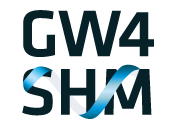
Project management: Prof. Dr.-Ing Inka Mueller
Duration: 01/01/2020 – 21/12/2023
Funded by: Marie Skłodowska-Curie Actions Innovative Training Network
This project focuses on improving the application of guided wave-based structural health monitoring (SHM) for pipelines, particularly in the petrochemical industry and civil infrastructure. Current methods, such as receiver operating characteristic (ROC) curves, are considered to be limited in providing site-specific reliability assessment and information output. The project aims to improve and standardise reliability assessment methods, with an emphasis on quantifying site dependency. Particular attention will be paid to technical hotspots for specific types of damage in pipelines. The project includes a combination of experimental and simulation-based data for specific damage types to achieve informative outputs comparable to established non-destructive testing (NDT) methods. In addition, the project will investigate different signal processing methods to understand their impact on reliability assessment.
Project management: Prof. Dr.-Ing. Inka Mueller
Funding organisation: German Research Foundation (DFG)
Duration: 2020 – 2022 (prolonged until March 2024)
The project focuses on Structural Health Monitoring (SHM), which involves continuous or periodic automated methods for assessing and monitoring the condition of monitored objects. The lack of comprehensive methods for evaluating SHM systems, in particular those based on guided waves, will be addressed by this scientific network. While traditional ultrasound methods have established quality assessment procedures, wave-based SHM systems present unique challenges, such as fixed sensor positions leading to location-dependent results for damage detection. The network aims to collaboratively address these challenges, share solutions, publish results and provide a basis for potential research projects. The aim is to develop a common understanding of issues related to holistic quality assessment of wave-based SHM systems.
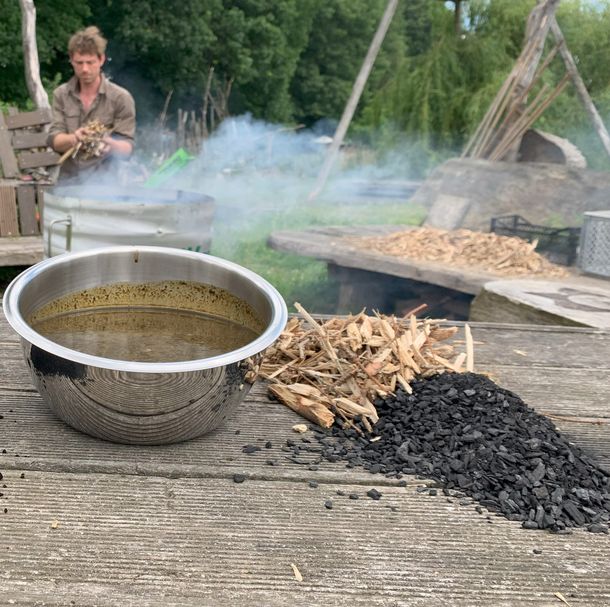
Project management: Prof. Dr. Marcus Schröter
Bochum University of Applied Sciences is addressing greenhouse gas emissions in the Ruhr region through its Sustainability in Engineering and Sustainable Development departments. Using innovative pyrolysis technology, the project aims to sequester greenhouse gases in biochar. The biochar can be used to improve soil fertility or as a sustainable substitute in concrete production. The project includes the construction of pyrolysis furnaces, tests on the impact of biochar on soil, and workshops to inform local businesses about carbon offsetting and help them find relevant service providers.
Project management: Prof. Dr. Erik H. Sänger
Funding body: Deutsche Forschungsgemeinschaft (DFG)
Grant period: 2019 – x
Project overview: Reinforced concrete structures are an integral part of modern life, but ensuring their longevity is crucial. This DFG-funded project, led by Professor Dr Christoph Gehlen, focuses on the development of a novel method using Codawave Interferometry (CWI) to assess the safety and durability of these structures. By studying the diffusive nature of coda waves in concrete, the project aims to detect changes in the structure, environmental parameters and loading conditions. Through laboratory experiments, numerical modelling and practical applications, the aim is to create a valuable management tool for reinforced concrete structures.

